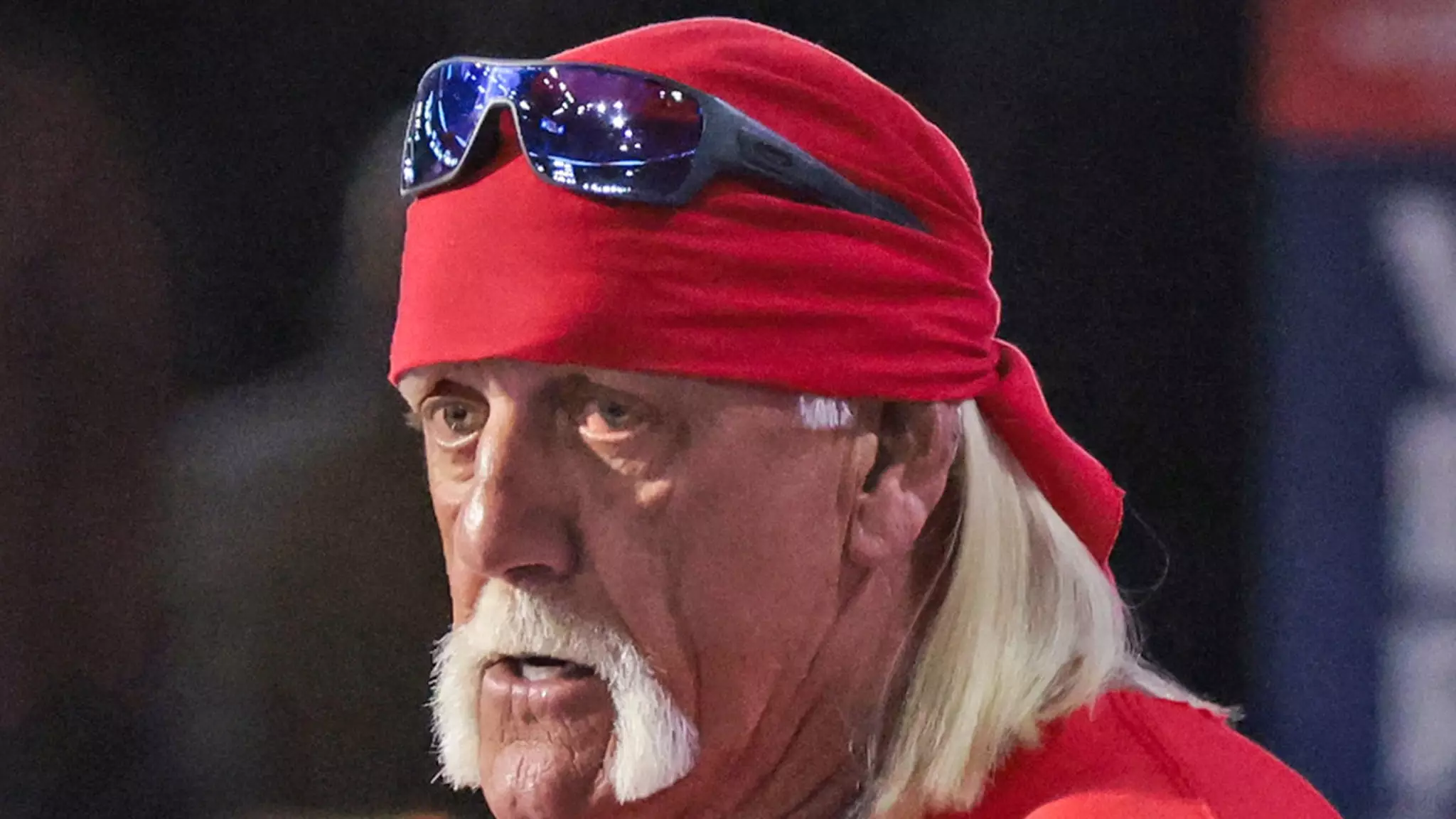The world was stunned to learn of Hulk Hogan’s passing at the age of 71, a monumental loss for both the professional wrestling community and popular culture at large. Reports from TMZ Sports revealed that paramedics responded swiftly to Hogan’s residence in Clearwater, Florida, early Thursday morning due to concerns over a possible cardiac arrest. Witnesses on the scene documented a frantic effort to save his life, with emergency personnel performing chest compressions before transporting him to a nearby hospital. Sadly, despite their efforts, Hogan was declared dead later that morning at 11:17 AM. Authorities confirmed there were no signs of foul play or suspicious activity, emphasizing the tragic nature of a sudden health crisis among a man who had long been a symbol of resilience and entertainment.
This unexpected event serves as a sobering reminder that even giants cannot escape the ravages of time and health complications. Hogan’s wife, Sky, had recently reaffirmed his well-being, denying rumors of coma or severe health decline, which underscores how ephemeral life can be, even for those who seem larger than life. The conflicting narratives outline a reality where perhaps one’s public persona often masks personal vulnerabilities, especially for athletes and celebrities who push their bodies to the limit.
Hulk Hogan’s Cultural Revolution
Few figures in professional wrestling have wielded as profound an influence as Hulk Hogan. His arrival in the sport in the early 1980s marked a metamorphosis, transforming wrestling from niche entertainment to mainstream spectacle. Hogan’s charismatic persona, marked by his signature bandana, handlebar mustache, and flamboyant antics, created a blueprint for generations to emulate. The rise of “Hulkamania” after his victory over the Iron Sheik in 1984 catalyzed a sports-entertainment phenomenon that permeated into households across nations. Hogan’s appeal was universal; he was both a ring hero and a pop culture icon, bridging generations and social barriers.
His magnetic persona was not limited to wrestling; it became a cultural phenomenon intertwined with the 1980s and 1990s. Hogan starred in blockbuster movies like “Rocky III,” where he embodied Thunderlips, further elevating his fame outside the squared circle. The character’s impact extended into television, with the reality show “Hogan Knows Best,” giving fans an intimate look into his family life. Hogan was also an outspoken entertainer, marking his presence during significant political events, including the 2024 Republican National Convention, where he captivated audiences with his larger-than-life stage presence.
Hogan’s reign in professional wrestling was marked by iconic matches and memorable rivalries that have endured through the decades. Noteworthy feuds with wrestler rivals like Randy Savage, the Ultimate Warrior, and a legendary confrontation with Andre the Giant at WrestleMania III cemented his status as an all-time great. His ability to connect emotionally with audiences catapulted wrestling into a global phenomenon.
The Complex Legacy of a Controversial Star
Despite his towering legacy, Hulk Hogan’s career was not without controversy. His induction into the WWE Hall of Fame in 2005 was a crowning achievement, yet it was marred four years later when a scandal erupted over racist remarks he made during a secretly recorded conversation. The revelation led to his temporary removal from the Hall of Fame, igniting debates about morality, redemption, and the complexity of public personas.
Hogan’s legal battles, especially his high-profile lawsuit against Gawker over the release of the controversial tape, underscored the fraught nature of celebrity privacy in the modern era. Despite these setbacks, WWE reinstated him in 2020, acknowledging his indelible impact on the sport and entertainment industry. His induction as a member of the NWO in the same year reaffirmed his influential role, not just as a hero but also as a complex figure who grew and evolved over time.
Towards the end of his life, Hogan faced numerous health challenges. He had multiple surgeries due to wrestling-related injuries, famously claiming to have no original body parts left, a testament to the toll that years of intense physical activity can take. Yet, despite these hardships, he remained active, launching initiatives like the “Real American Freestyle” wrestling league, signaling his enduring passion for the sport.
A Reflection of a Legend’s Enduring Influence
Hulk Hogan’s death leaves a void that cannot be filled in the landscape of professional wrestling and popular culture. His ability to transcend the wrestling ring and become a household name set a precedent for future stars. His unique blend of showmanship, charisma, and controversy shaped an entire era and influenced countless athletes and entertainers.
The industry will forever remember Hogan as both a pioneer and a reflection of the complexities of fame. His story is a tapestry woven with remarkable triumphs, personal battles, and enduring influence. While his physical presence is gone, the impact of his career and the memories he created remain immortal. Hogan’s life encapsulates the extraordinary power of entertainment—how a single individual can inspire, entertain, and spark conversations long after their time has come to an end.

